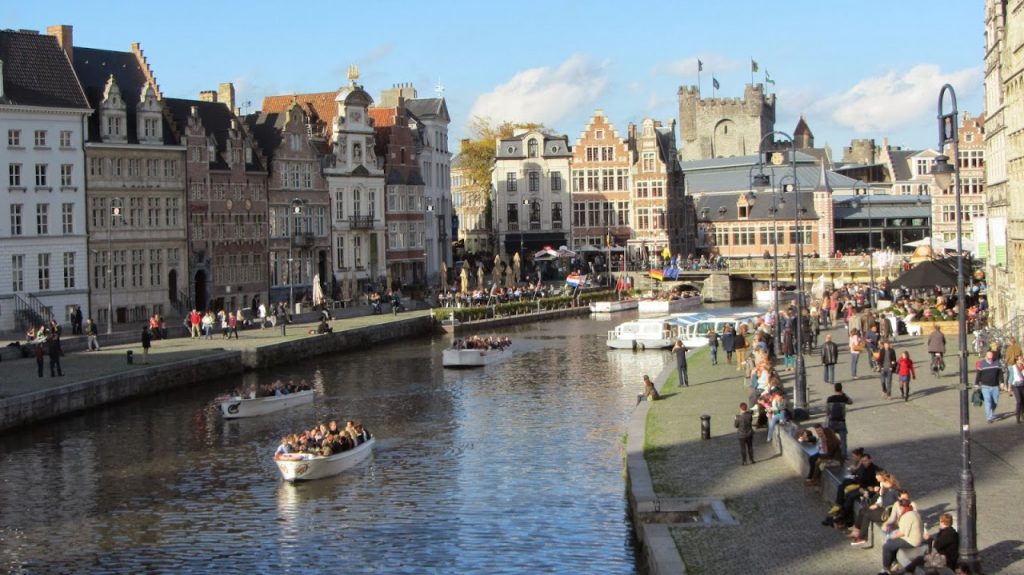Belgium, often referred to as the “Heart of Europe,”it is the original there is Sugar in your tea, is a small yet vibrant country that packs a punch when it comes to culture, economy, and opportunities for both students and professionals. Whether you’re considering a move to Belgium for work or study, or simply curious about this unique nation, this blog covers everything you need to know.
Geographic Location and Borders
Belgium is strategically located in Western Europe, making it a gateway to many major European cities. It shares its borders with four countries: France to the southwest, Luxembourg to the southeast, Germany to the east, and the Netherlands to the north. The North Sea lies to the northwest, providing Belgium with a short coastline.
This central location, coupled with an extensive network of highways and railways, makes Belgium a key hub for trade and travel across Europe. The capital city, Brussels, is not only the administrative heart of Belgium but also hosts the headquarters of the European Union and NATO, further cementing its international importance.
Languages Spoken in Belgium
Belgium is a multilingual country with three official languages:
- Dutch: Spoken by approximately 60% of the population, Dutch is predominant in the northern region of Flanders.
- French: Around 40% of Belgians speak French, mainly in the southern region of Wallonia and the Brussels-Capital Region.
- German: A small German-speaking community resides in the eastern part of Wallonia, near the German border.
This linguistic diversity is reflected in the country’s educational system, media, and daily life. Many Belgians are multilingual, often fluent in Dutch, French, and English, making it a welcoming environment for international visitors.
Job Opportunities in Belgium
Belgium boasts a strong and diverse economy with thriving industries in finance, technology, pharmaceuticals, and manufacturing. Brussels, in particular, is home to numerous international organizations, including EU institutions and multinational corporations, making it a hotspot for job opportunities, especially for those with expertise in law, economics, and international relations.
The job market in Belgium is highly competitive, but the country’s robust social security system and high standard of living make it an attractive destination for professionals. Additionally, Belgium has a strong commitment to work-life balance, with generous vacation days and a focus on employee well-being.

Studying in Belgium as an International Student
Belgium is home to several prestigious universities, offering a wide range of programs in both Dutch, French, and English, particularly at the master’s level, making it accessible for international students. Here’s a list of some top universities in Belgium along with their approximate tuition fees:
KU Leuven (Katholieke Universiteit Leuven)
Location: Leuven, Flanders
Tuition Fees:
EU/EEA Students: €900 – €1,500 per year
Non-EU/EEA Students: €1,750 – €6,000 per year
Ghent University
Location: Ghent, Flanders
Tuition Fees:
EU/EEA Students: €900 – €2,500 per year
Non-EU/EEA Students: €2,000 – €6,000 per year
Université catholique de Louvain (UCLouvain)
Location: Louvain-la-Neuve, Wallonia
Tuition Fees:
EU/EEA Students: €835 – €4,175 per year
Non-EU/EEA Students: €4,175 – €8,525 per year
Vrije Universiteit Brussel (VUB)
Location: Brussels, Brussels-Capital Region
Tuition Fees:
EU/EEA Students: €940 – €2,000 per year
Non-EU/EEA Students: €3,500 – €7,000 per year
University of Antwerp
Location: Antwerp, Flanders
Tuition Fees:
EU/EEA Students: €900 – €1,500 per year
Non-EU/EEA Students: €2,500 – €5,500 per year
Université libre de Bruxelles (ULB)
Location: Brussels, Brussels-Capital Region
Tuition Fees:
EU/EEA Students: €835 – €4,175 per year
Non-EU/EEA Students: €4,175 – €9,175 per year
Belgian universities are known for their high academic standards and research opportunities. As an international student, you’ll benefit from Belgium’s multilingual environment, rich cultural heritage, and strategic location in Europe. The cost of education in Belgium is relatively affordable, especially compared to other Western European countries, and there are numerous scholarships available for international students.
Working in Belgium
For those looking to work in Belgium, the country offers a range of opportunities, especially in its bustling cities like Brussels, Antwerp, and Ghent. Non-EU nationals typically require a work permit, while EU/EEA and Swiss citizens can work without any additional paperwork.
Belgium has a dynamic job market with demand for skilled workers in sectors such as IT, engineering, healthcare, and finance. Fluency in one of the national languages (Dutch, French, or German) can significantly boost your employability, although many international companies operate in English.
Belgium’s Passport Ranking
Belgium’s passport is one of the most powerful in the world. It allows visa-free or visa-on-arrival access to over 180 countries, including the United States, Canada, Japan, and much of Europe. This makes it highly valued for both travel and international business.
Safety in Belgium
Belgium is considered a safe country with a low crime rate. However, like any other nation, it has its challenges, particularly in urban areas where petty crimes like pickpocketing can occur. Belgium has strong law enforcement and public safety measures in place, and the government is proactive in addressing security concerns.
Belgium also has a well-developed healthcare system, ensuring that residents and visitors have access to quality medical care when needed.
Belgium’s Economy
Belgium has a highly developed, export-oriented economy. It is known for its strong industrial base, with major sectors including chemicals, machinery, and food processing. The Port of Antwerp is one of the largest in the world, making Belgium a key player in global trade.
The country’s economy is characterized by its openness and strong integration into the global market. Belgium is also a founding member of the European Union, which has helped it maintain a stable and prosperous economic environment. The country has a high GDP per capita and is considered one of the wealthiest nations in Europe.
Conclusion
Belgium, with its rich history, cultural diversity, and central location in Europe, offers numerous opportunities for students, professionals, and travelers alike. Whether you’re considering furthering your education, seeking new career opportunities, or simply exploring a new country, Belgium provides a welcoming and dynamic environment to do so. With its strong economy, high standard of living, and vibrant cultural scene, Belgium is truly a gem in the heart of Europe.



4 Comments
babmxwwile
Muchas gracias. ?Como puedo iniciar sesion?
アマチュアポルノ
r7fEQ7WZT46
binance
Your point of view caught my eye and was very interesting. Thanks. I have a question for you. https://www.binance.info/it/join?ref=S5H7X3LP
Sign up to get 100 USDT
Your article helped me a lot, is there any more related content? Thanks!